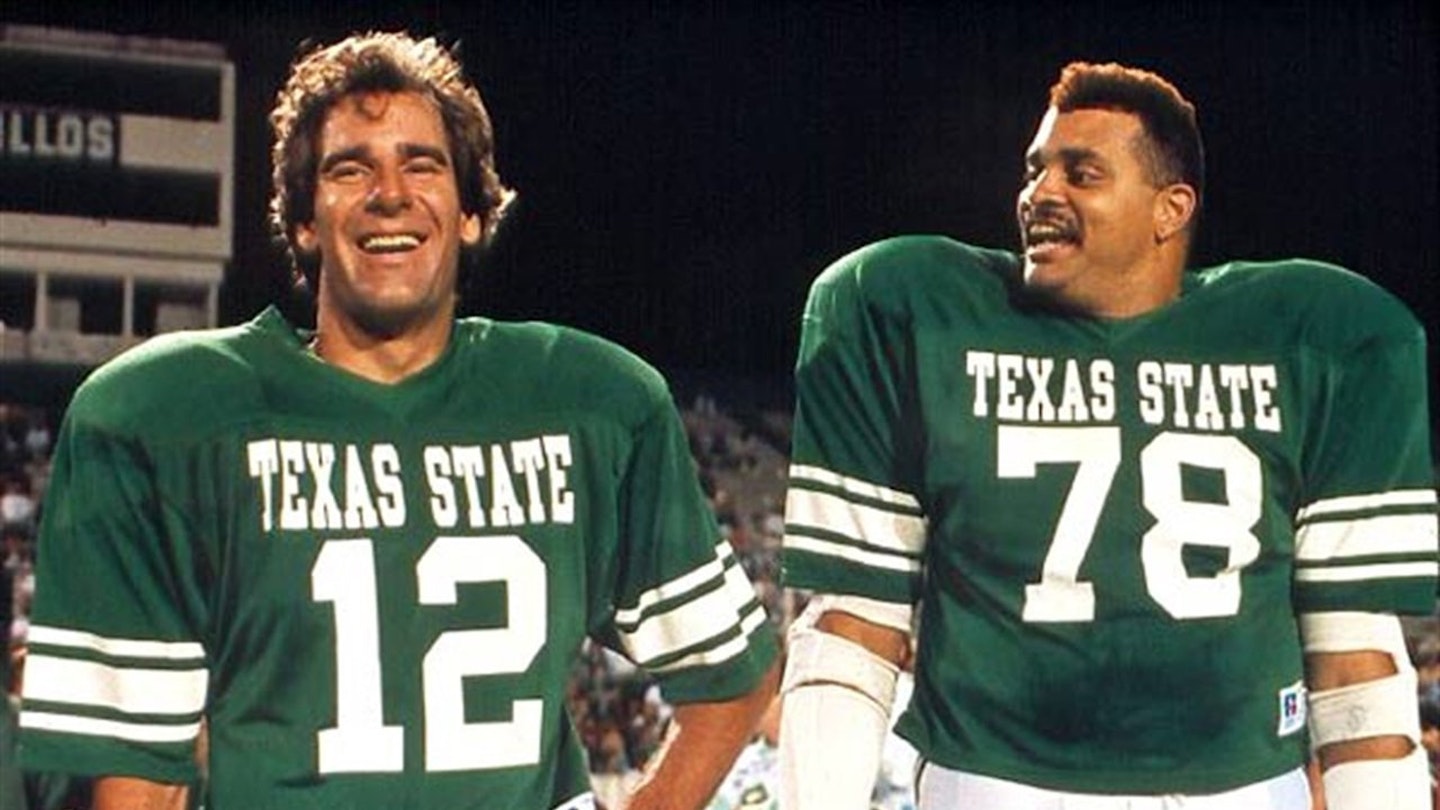Historically, movies about American Football have fouled up in Britain even worse than movies about baseball, and this one is no exception because it's so feeble and formula-ridden.
Scott Bakula plays an aging has-been who always regretted missing out his chance to play college ball when he took over the family farm. Bakula, in his first movie lead after consistently amiable work on TV's Quantum Leap, shows up and gamely goes through the humiliation of being the only freshman over the age of nineteen, falling for his journalism prof (Harley Jane Kozak) and bending under Elizondo's stern discipline.
With the film's warm liberal thirtysomething credentials established in Bakula's performance, Elizondo is free to take care of the whacky comedy requirements by recruiting stereotype eccentric loons for the rest of his squad - a whale-like Samoan, a strewth-ing Aussie, a hard-kicking swimsuit girl, a bull-headed cowboy, a black party dude, etc.
Then, as the Bill Conti score strains on the soundtrack and the Carry On Ball-Fumbling team strain on the pitch, all the expected cliches of the sporting losers-make-a-comeback plot last seen in Major League are trotted out: the heart attack Elizondo suffers at a crucial moment, the barroom brawl that sets up a grudge to be paid off in the climax, the big game whose outcome has to be settled with a longshot tactic in the last nanosecond of play, the sudden dose of mystical self-respect Bakula develops on the field.
Although adequately put together, this is entirely unnecessary as a movie, with nothing to add to its limited interest sub-genre, no surprises at all in its by-the-numbers script, and no credit at all to the various servicable members of the cast.
